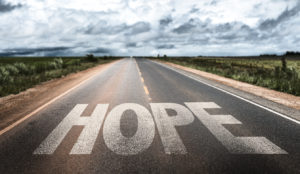I'm going to interrupt the Mythbusters series I've been publishing this month because something extraordinary has been happening in my world. Something I hope will make a difference.
My daughter, who is a journalist/producer at online news company NowThis, asked me to do a piece on mental health. I decided to do it on the subject of neurodiversity. The piece we did was published about 12 days ago and as of today has over 6 million views and a lot of shares. Here's a link: http://nowthisnews.com/videos/news/what-you-need-to-know-about-neurodiversity.
I'm wondering why this message has "gone viral." What is it that so interested and touched people? It certainly wasn't the messenger (oh my gosh could I have been any stiffer?)
I've received a tidal wave of responses. Some - especially those from neuropsychologists - have been critical of the piece for not emphasizing how important disability diagnosis and treatment are. I want to say here that I agree diagnosis is appropriate when needed for identification and services and that addressing areas of challenge is always very important. For everyone, whether they have a disability or not. I have always believed, though, that there are two sides to the coin. Areas of weakness and areas of strength. Some of my colleagues neglect the latter. I think we should all be focusing more on people's strengths.
I also received an e-mail from a person who had acquired ADHD as the result of an illness and did not see it as an evolutionary advantage. I agree. But even in the case of disability or a debilitating illness I feel that focusing on what we can do, or what we might be able to do with some help and support, can help us more than focusing exclusively on what we can't do. When my daughter (the one who produced the video) was diagnosed with ADHD and dyslexia we and her school initially focused exclusively on "fixing" what was "broken." She developed learned helplessness - a condition in which she felt powerless to do things she actually could have done and asked for help with practically everything. By focusing more attention on her strengths (creativity and story-telling skills) she began to bloom.
Most of the e-mails and responses on Facebook pages and Twitter have been positive. Some people shared their personal experiences or those of their child, said they had felt alone, but now felt recognized and more hopeful. Hopeful that society can change and see the beauty in diversity. Some asked how they can volunteer to help the movement - the neurodiversity movement. I'm not sure how to respond to that as I'm not a social activist. I know the movement originated from the autism community and has spread to others. I wish someone would take on a role uniting all of us who believe in this. We need an organizer, a foundation, or a conference. Debbie Reber of Tilt Parenting has taken on the charge of revolutionizing the parenting of differently wired kids in her podcast and new book. I hope others step up to the table. It seems the time is right for this conversation. I sure hope so!

